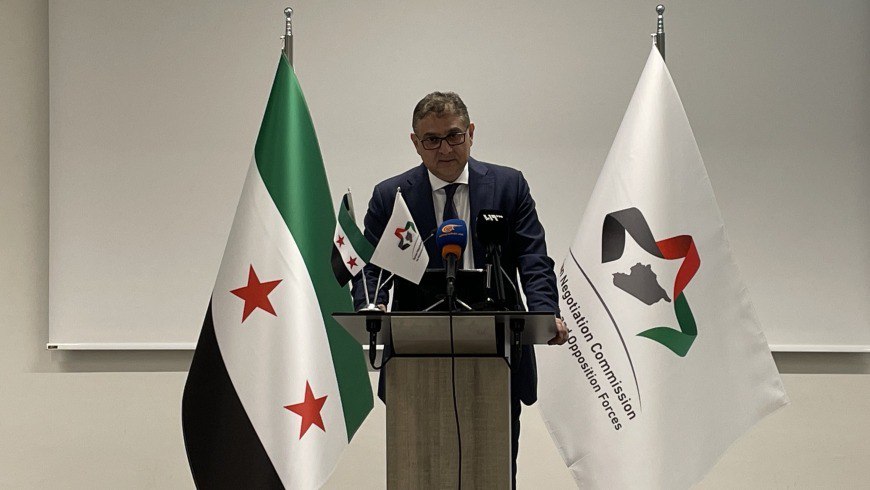The Syrian Negotiation Commission has criticized Arab countries’ normalization with the Syrian regime and its reentry into the Arab League. They emphasized their unity and readiness to engage in negotiations with the regime based on UN Security Council Resolution 2254.
Syrian Negotiation Commission: Appropriate Circumstance for Resumption of Direct Negotiations
During a press conference held by the head of the Negotiations Committee, Badr Jamous, the opposition stated that all factions within the committee gathered in Geneva to discuss strengthening the role of the opposition and regional and international developments regarding the Syrian issue. Meetings were held with UN envoy Geir Pedersen and envoys from various countries involved in Syria.
Unified Opposition
Jamous highlighted the unity of the Syrian opposition, stating that the discussions in Geneva focused on bolstering the opposition’s role and addressing regional and international dynamics related to the Syrian conflict. He confirmed that he and Pedersen discussed the quartet meeting on Syria, held in Moscow on May 10, involving the foreign ministers of Russia, Turkey, Iran, and the Syrian regime. They also addressed the aftermath of the earthquake that affected Syria and Turkey in February.
Jamous reiterated the negotiation body’s commitment to UN Security Council Resolution 2254 as the framework for a political solution in Syria. The components of the commission released a joint statement affirming this commitment following the meeting.
No Solution through Normalization
“The opposition is prepared for dynamic negotiations in line with Resolution 2254. We are unified, and any hindrance to the political process lies with the regime itself,” Jamous stated. He criticized the Arab steps toward normalizing relations with the Syrian regime, emphasizing that such measures would not lead to a political solution. He stressed that the return of Syrian refugees could only be achieved through a political resolution within the country.
Arab League Return and Envoys’ Meetings
The Arab League recently made the decision to reinstate the Syrian regime’s membership, which had been suspended since 2011. Syrian delegations, including President Bashar al-Assad, participated in the Arab summit held in Jeddah, Saudi Arabia, on May 19, following an invitation from Riyadh.
During the meetings, the Syrian Negotiation Commission reaffirmed its commitment to Resolution 2254 and expressed its willingness to resume direct negotiations with the regime beyond the Constitutional Committee meetings in Geneva, which have been suspended for nearly a year. The commission also met with envoys from several countries involved in Syria to discuss matters of concern to the Syrian people, the political process’s suspension, and regional and international initiatives.
The commission urged international representatives to prioritize achieving a political transition and implementing Resolution 2254. They emphasized their commitment to negotiating in Geneva under the United Nations umbrella and called for positive engagement with initiatives aiming to fulfill international resolutions, including Arab initiatives and the Quartet. The commission expressed readiness to implement the political process in accordance with international resolutions while emphasizing that the regime bears sole responsibility for obstructing political solutions. The commission’s ultimate goal is the safe return of refugees, counterterrorism efforts, and combating drugs, all within the framework of international resolutions.
This article was translated and edited by The Syrian Observer. The Syrian Observer has not verified the content of this story. Responsibility for the information and views set out in this article lies entirely with the author.


